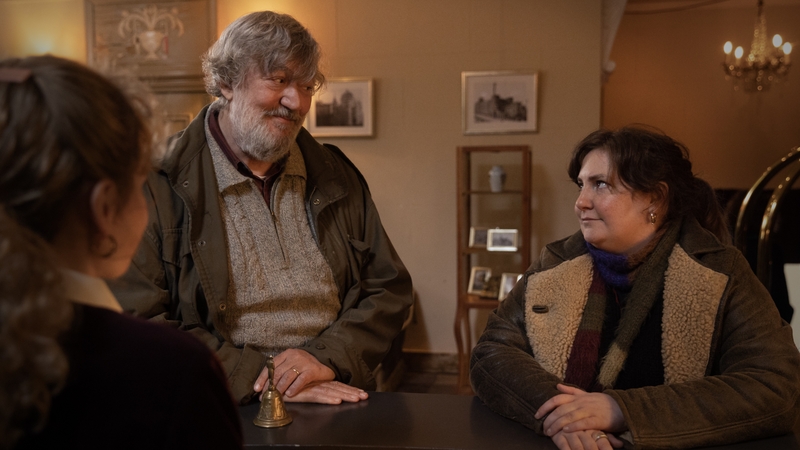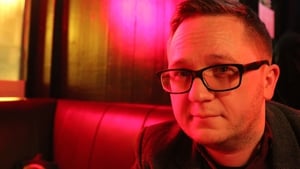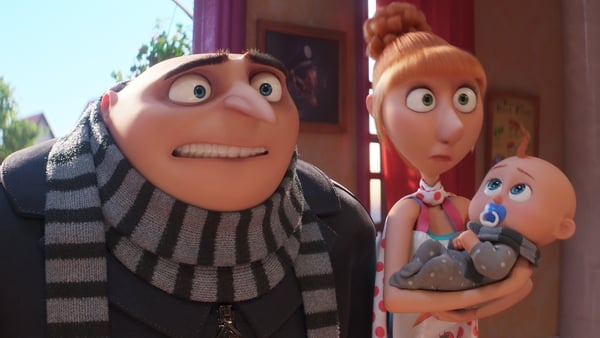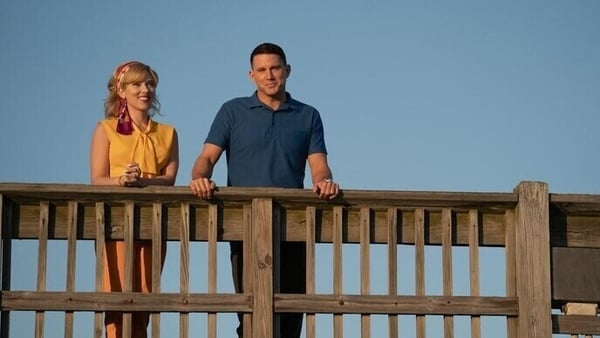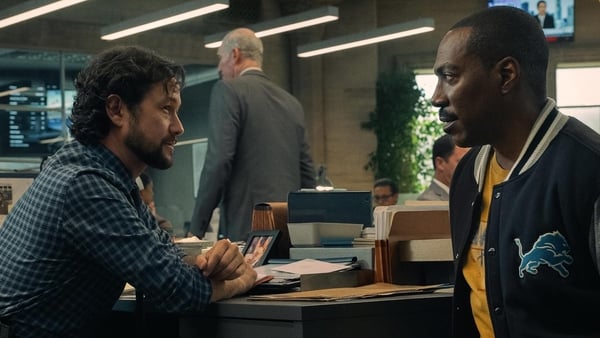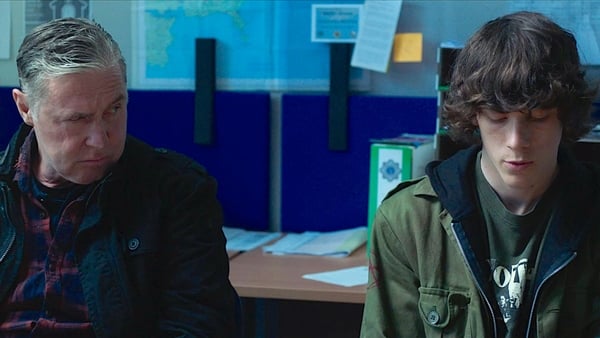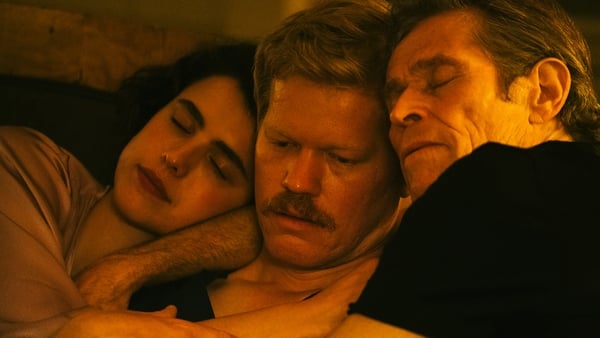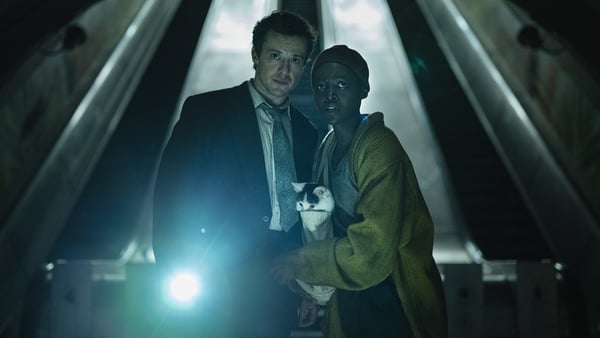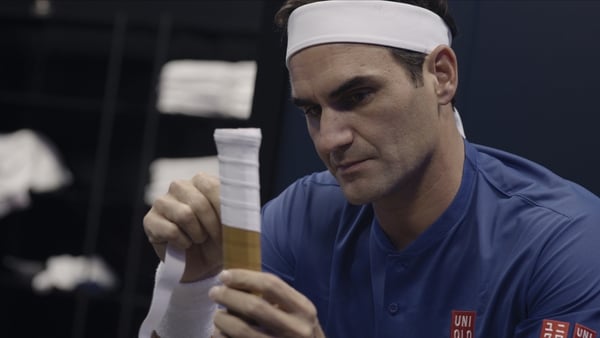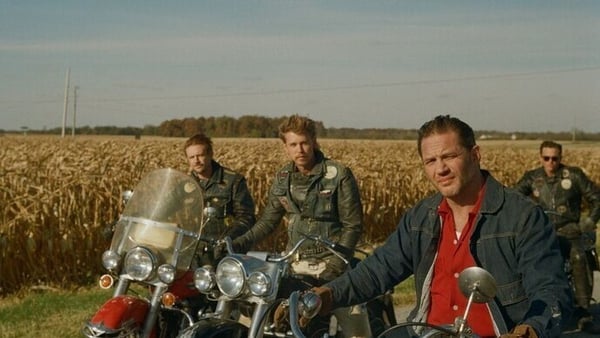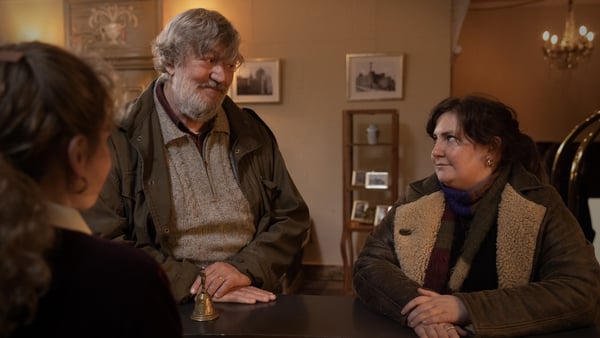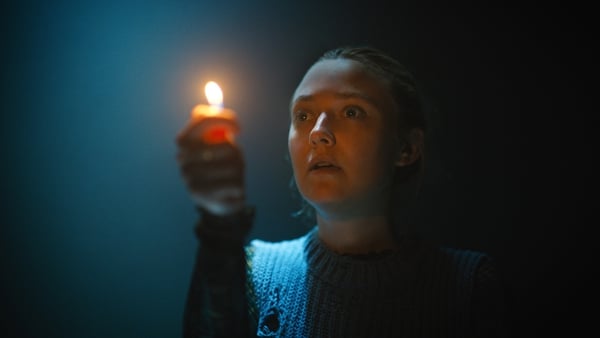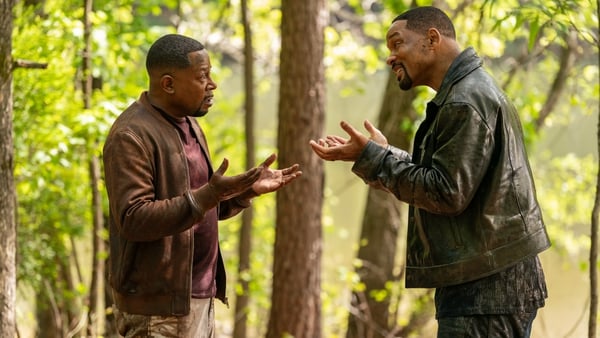A father and daughter get to grips with intergenerational trauma in this long and meandering tale
An odd couple both onscreen and off, nobody could have predicted that one day we'd see the multi-hyphenate British icon Stephen Fry paired up with the very New York, millennial, "voice of a generation", Girls creator, Lena Dunham. Unfortunately, it’s not a mix that is surprisingly appealing.
We need your consent to load this YouTube contentWe use YouTube to manage extra content that can set cookies on your device and collect data about your activity. Please review their details and accept them to load the content.Manage Preferences
It’s 1991 and we’re in a very grey Poland where Dunham plays Ruth, a journalist who wants to write about her Polish, Jewish father, Edek (Fry) and his holocaust experience.
Ruth has perhaps unwisely brought Edek along for the ride and he, understandably, is more interested in making new friends and seeing sights unrelated to the genocidal murder of his family.
Father and daughter instantly clash and this is where as a viewer you may quickly lose sympathy for Ruth’s plight. She is brain-numbingly oblivious to Edek’s PTSD and clueless as to why he would go through such lengths to avoid travelling by train. Ruth’s ignorance of her father’s mindset is very much a deliberate choice in the storytelling but they may have pushed it a little too far as audiences may struggle to get back on her side.
Fry as the large and cuddly Edek on the other hand is likeable yet not believable - maybe it’s the cod Polish accent. Although the fact that the character has lived most of his life in New York may excuse any inaccuracies. But the fact is, you never forget you’re watching Stephen Fry doing an accent. A mild offence compared to Dunham who sometimes delivers her lines as if they were written on a cue card.
The good intentions are there though - this feels like a story close to everyone involved and the film has a good heart and some of the peripheral Polish characters may bring the odd smile. Treasure also explores areas of the Holocaust that have garnered little attention in cinema. When they were captured, Edek’s family home was handed over to non-Jewish families. What happens decades later when the colonising family are still there?
The film trundles along with some very jarring cuts, it never feels like it quite knows how to end a scene. One would suspect that they may have shot a lot more footage than required. A better, more coherent film may have been lost in the edit.
